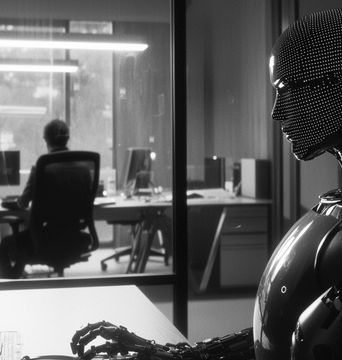SECOND WAVE OF AI CODING REVOLUTIONIZES SOFTWARE DEVELOPMENT, OFFERS SHORTCUT TO ADVANCED AI!

The second tsunami wave of artificial intelligence (AI) is crashing onto the shores of programming and software development landscape, reshaping it forever. Led by tech giants such as Google and a round-robin of pioneering start-ups like Zencoder, Merly, Cosine, Tessl, and Poolside, this new wave offers a focus on enhancing software development and the debugging process with cutting-edge AI tools.
Among the vanguard of this AI revolution is Copilot, a tool developed and launched by OpenAI and GitHub. Currently utilized by millions of developers around the globe, Copilot uses advanced language models to aid programmers. Similarly, general-purpose chatbots like Claude, designed by Anthropic, or Gemini from Google's DeepMind, provide coding assistance services that are instrumental in streamlining the development process.
The aim of these startups is to develop generative coding assistants capable of writing, testing, and debugging code. This evolution in AI capability could pivot developers from coding and debugging directly, to managing these intelligent coding assistants. This change could potentially reduce the percentage of human-induced errors and accelerate the development process.
Many industry pioneers believe these AI coding tools could be the golden path leading to the elusive dream of artificial general intelligence (AGI)—technology that matches or exceeds human cognitive abilities. But as with any disruptive innovation, there's a differing viewpoint worth considering. Merly’s CEO, Justin Gottschlich, contests this overly optimistic scenario. According to Gottschlich, large language models are similar to "statistical slot machines," and question the capability of these models' ability to think logically like a proficient programmer.
Amid the dissent, one thing is undeniable: AI assistants like Cosine's Genie are becoming increasingly prevalent within the developer community. These tools are capable of simultaneously prototyping multiple versions of a system and tirelessly fixing bugs around the clock.
One potential concern is the job displacement this tech revolution may cause. The rise of AI coding tools could paradoxically lead to the reduction of programmer roles, as the emphasis shifts towards smaller teams of elite developers capable of monitoring AI activity and make necessary corrections.
While the aspiration of achieving AGI remains a remote star, the landscape of our software engineering world is nevertheless being transformed by machine-assistance. The ever-growing role of AI in coding crystallizes the fact that the future of programming will be intrinsically intertwined with machine learning and artificial intelligence capabilities.
Whether these changes usher in a new era of progress and efficiency or lead to a dystopian future where human developers are rendered redundant by software overseers is something we will need to navigate. But one thing is certain, the era of AI-assisted coding is already here, and it's poised to forever change our understanding of software development.